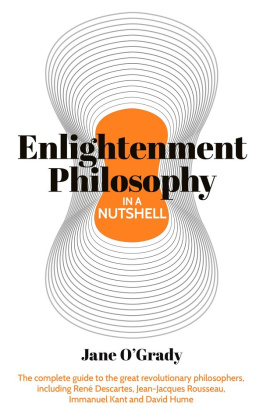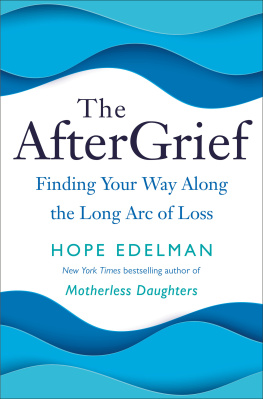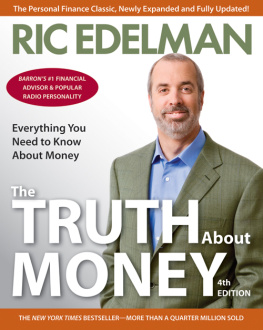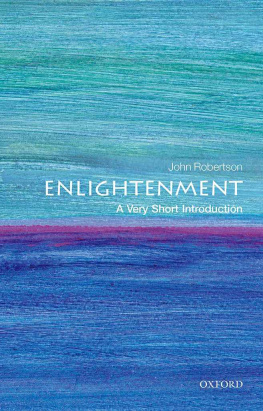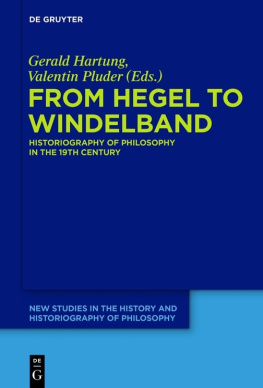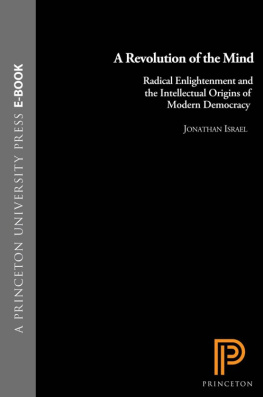Edelman Gerald - The Enlightenment and the Intellectual Foundations of Modern Culture
Here you can read online Edelman Gerald - The Enlightenment and the Intellectual Foundations of Modern Culture full text of the book (entire story) in english for free. Download pdf and epub, get meaning, cover and reviews about this ebook. City: New Haven, year: 2004, publisher: Yale University Press, genre: Science. Description of the work, (preface) as well as reviews are available. Best literature library LitArk.com created for fans of good reading and offers a wide selection of genres:
Romance novel
Science fiction
Adventure
Detective
Science
History
Home and family
Prose
Art
Politics
Computer
Non-fiction
Religion
Business
Children
Humor
Choose a favorite category and find really read worthwhile books. Enjoy immersion in the world of imagination, feel the emotions of the characters or learn something new for yourself, make an fascinating discovery.

- Book:The Enlightenment and the Intellectual Foundations of Modern Culture
- Author:
- Publisher:Yale University Press
- Genre:
- Year:2004
- City:New Haven
- Rating:5 / 5
- Favourites:Add to favourites
- Your mark:
- 100
- 1
- 2
- 3
- 4
- 5
The Enlightenment and the Intellectual Foundations of Modern Culture: summary, description and annotation
We offer to read an annotation, description, summary or preface (depends on what the author of the book "The Enlightenment and the Intellectual Foundations of Modern Culture" wrote himself). If you haven't found the necessary information about the book — write in the comments, we will try to find it.
Edelman Gerald: author's other books
Who wrote The Enlightenment and the Intellectual Foundations of Modern Culture? Find out the surname, the name of the author of the book and a list of all author's works by series.
The Enlightenment and the Intellectual Foundations of Modern Culture — read online for free the complete book (whole text) full work
Below is the text of the book, divided by pages. System saving the place of the last page read, allows you to conveniently read the book "The Enlightenment and the Intellectual Foundations of Modern Culture" online for free, without having to search again every time where you left off. Put a bookmark, and you can go to the page where you finished reading at any time.
Font size:
Interval:
Bookmark:
The Enlightenment and the Intellectual Foundations of Modern Culture
Published with assistance from the foundation established in memory of Philip Hamilton McMillan of the Class of 1894, Yale College.
Copyright 2004 by Louis Dupr.
All rights reserved.
This book may not be reproduced, in whole or in part, including illustrations, in any form (beyond that copying permitted by Sections 107 and 108 of the U.S. Copyright Law and except by reviewers for the public press), without written permission from the publishers.
Set in Sabon type by Keystone Typesetting, Inc.
Printed in the United States of America by Sheridan Books.
Library of Congress Cataloging-in-Publication Data
Dupr, Louis.
The Enlightenment and the intellectual foundations of modern culture/Louis Dupr.
p. cm.
Includes bibliographical references and index.
ISBN 0300-100329 (hardcover)
1. Enlightenment. 2. Civilization, Modern. 3. Philosophy and civilization. I. Title.
B802 .D86 2004
190.9033dc22
2003023865
A catalogue record for this book is available from the British Library.
The paper in this book meets the guidelines for permanence and durability of the Committee on Production Guidelines for Book Longevity of the Council on Library Resources.
10 9 8 7 6 5 4 3 2 1
To Edith,
after twenty-five years, with gratitude
Stunned by the attacks on September 11, 2001, I wondered if there was any purpose in writing about the Enlightenment at a time that so brutally seemed to announce the end of its values and ideals. It later dawned on me that the events of that fatal day might not be unrelated to the subject of my reflections. I do not mean, of course, that Islamic culture is or was unenlightened. It flourished well before that of the Christian West and for centuries surpassed it. But Islam never had to go through a prolonged period of critically examining the validity of its spiritual vision, as the West did during the eighteenth century. The doubt and anxiety that accompanied the Wests reassessment of its past have marked the rest of the modern age. Since then Europe has known its own horrors, causing us to question the adequacy of the Enlightenments answers as well as the effectiveness of its solutions. But it permanently inured us against one thing: the willingness to accept authority uncritically. The particular merit of the Enlightenment did not consist, as some have claimed, in abolishing moral or religious absolutes. Indeed, the loss of moral absolutes, whether caused by the Enlightenment or not, lies at the root of the inhumanity of the past century. But the need to question has advantageously distinguished our culture from others. Islamic culture has, of course, known its own crises, none more painful and less deserved than the loss of its status in the modern world, yet it was never forced to question its traditional worldview. The Enlightenment was a Western phenomenon that defined the future of the West. In this book I intend to study its implications.
I owe thanks to many for their assistance with this book. In the first place to Jonathan Brent, editorial director of the Yale University Press, who supported this project from the start, to his assistant, the ever-patient Kate Shepard, and to my uncommonly observant copy editor, Eliza Childs. Cyrus Hamlin, Giuseppe Mazotta, James B. Murphy, Kenneth Schmitz, Edward Stankiewicz, Donald Verene, David Walsh, James Wiseman, and Allen Wood read parts of the text and generously commented on it. To Stefano Penna I owe a particular debt. In addition to the many discussions through which he helped me to refine my ideas, he spent days rescuing the book from an early demise caused by computer problems. Finally, my wife Edith patiently and impatiently suffered with me while I wrote and rewrote one slow chapter after another. Despite urgent work of her own, she prepared the final version of several chapters. To her I dedicate the still imperfect result.
This book had its origin in the surprise I experienced many years ago when considering the fundamental change in thinking and valuing that occurred during the period stretching from the second half of the seventeenth century until the end of the eighteenth. Curious to know what the intellectual principles of modern thought were, I made a study of the beginnings of modern culture before turning to the critical epoch that forms the subject of the present book. It soon appeared that no direct causal succession links the humanism of the fifteenth century with the Enlightenment. When Max Weber described modernity as the loss of an unquestioned legitimacy of a divinely instituted order, his definition applies to the Enlightenment and the subsequent centuries, not to the previous period. We ought to avoid the mistake made by Jacob Burckhardt in The Civilisation of the Renaissance in Italy, and often repeated in the twentieth century, of interpreting the Renaissance as the first stage of the Enlightenment. It is true, though, that the early period introduced one fundamental characteristic of modern culture, namely, the creative role of the person. Yet that idea did not imply that the mind alone is the source of meaning and value, as Enlightenment thought began to assume. To investigate what is new in the basic concepts of this later period of modernity and to find out how it has affected our own culture has been the purpose of this study. The Enlightenment enjoys no high regard in our time. Many consider its
Rarely did the Enlightenment attain true greatness in the visual arts. Some painters have left us major works. Watteau, Chardin, La Tour, Tiepolo, Reynolds, and Gainesborough immediately come to mind. But the eighteenth century lacked the explosive creativity of the preceding two centuries. This holds true even more for sculpture: we remember most of the works only because of the models they portrayed. The case of literature is more complex. French, English, and German prose attained classic perfection during that period. The works of Hume, Johnson, Fielding, and Gibbon in Britain, of Voltaire, Rousseau, and Fnelon in France, and of Wieland and Lessing in the German lands continue to serve as models of elegant, precise, and powerful expression. But little memorable lyrical poetry appeared between Milton and Wordsworth. Or between Ronsard and Lamartine. Dramas were better performed than ever, particularly in England, which also produced excellent comedies. But few major tragedies were written between Racine and Schiller. Music and architecture enjoyed a glorious season. Yet some of its greatest composersHandel, Bach, Haydnstill drew their inspiration from the spiritual impetus of an earlier age. Significantly, we refer to eighteenth-century composers as Baroque artists. The splendid architecture of the time also, by large part, continued to build on earlier foundations. In Spain, Bavaria, and Austria, the Baroque style culminated in the eighteenth century, while English and French classicism continued to be inspired by Renaissance principles.
In contrast to the often mediocre quality of its artistic achievements, the Enlightenment displays a veritable passion for ideas. The second half of the seventeenth century and the first one of the eighteenth witnessed the breakthrough of modern science and the establishment of new scientific methods. Newton changed not only our world picture but our very perspective on reality. There is hardly a field in which his influence does not appear. The historical works of Montesquieu, Voltaire, Gibbon, and Herder form the majestic entrance to modern historiography. Equally striking is the sudden emergence of major philosophers: Spinoza, Leibniz, Locke, Berkeley, and Hume. Kant, the most gifted thinker of the period and the one who brought its ideas to a synthesis, largely defined the course of philosophical reflection for the next two centuries. The very contrast between the Enlightenments stunning accomplishments in history, science, and philosophy and the lesser ones in the fine arts (again, with the exceptions of music and architecture) highlights its intellectual orientation. It was first and foremost a breakthrough in
Next pageFont size:
Interval:
Bookmark:
Similar books «The Enlightenment and the Intellectual Foundations of Modern Culture»
Look at similar books to The Enlightenment and the Intellectual Foundations of Modern Culture. We have selected literature similar in name and meaning in the hope of providing readers with more options to find new, interesting, not yet read works.
Discussion, reviews of the book The Enlightenment and the Intellectual Foundations of Modern Culture and just readers' own opinions. Leave your comments, write what you think about the work, its meaning or the main characters. Specify what exactly you liked and what you didn't like, and why you think so.

